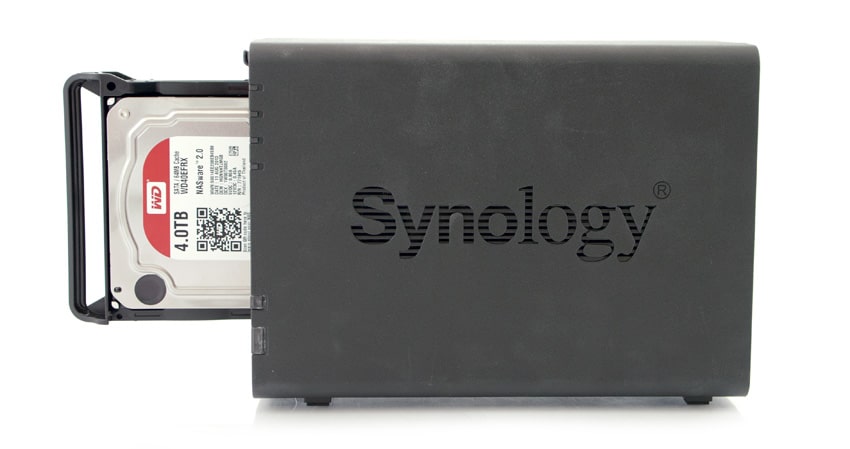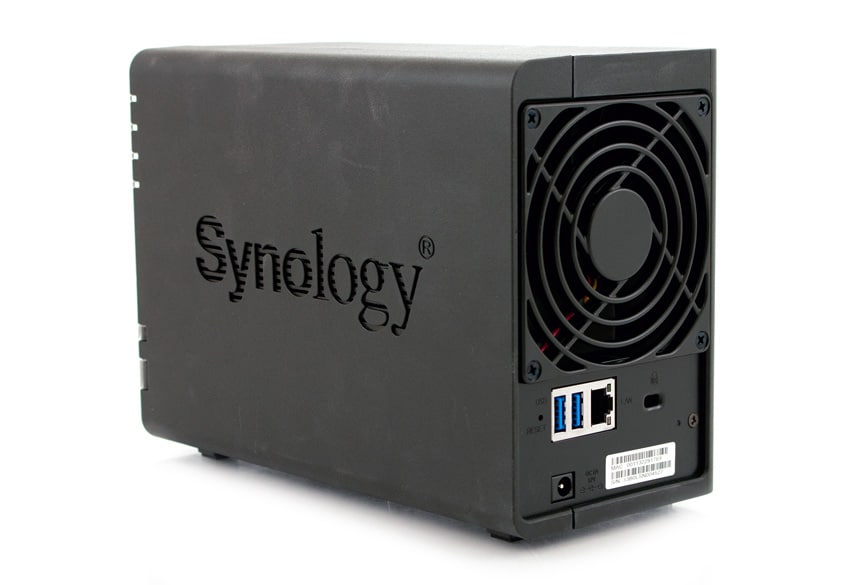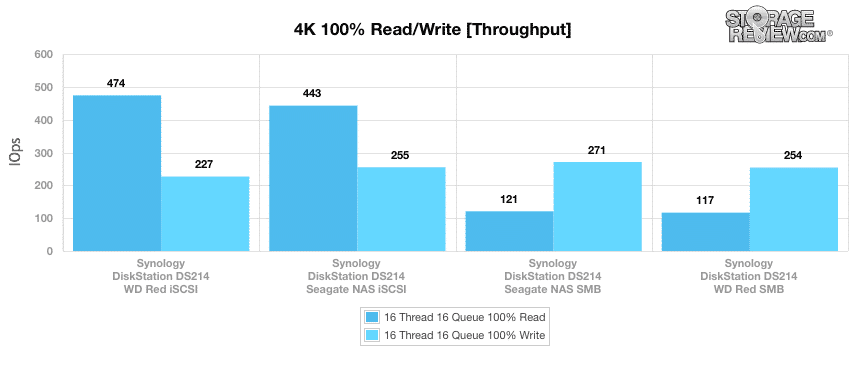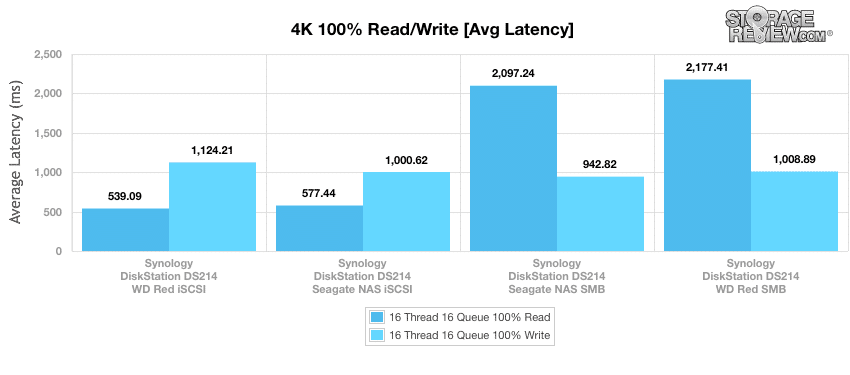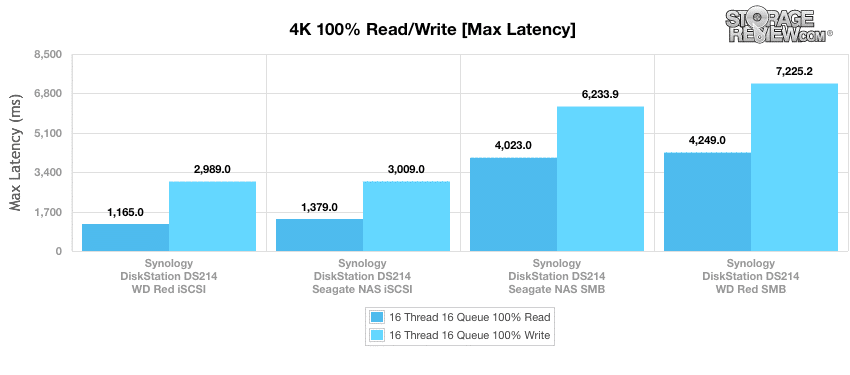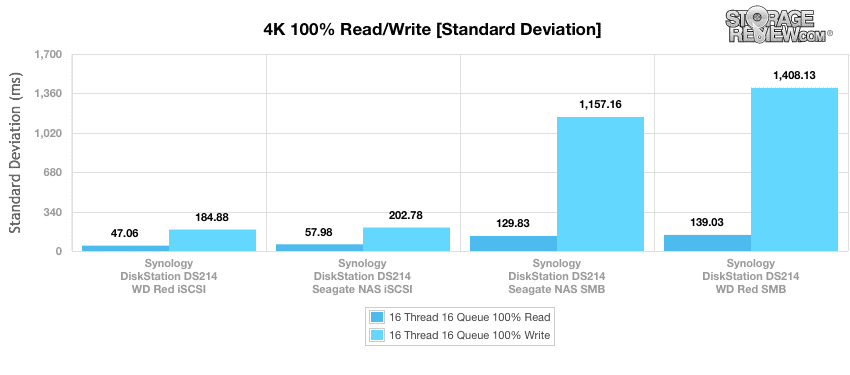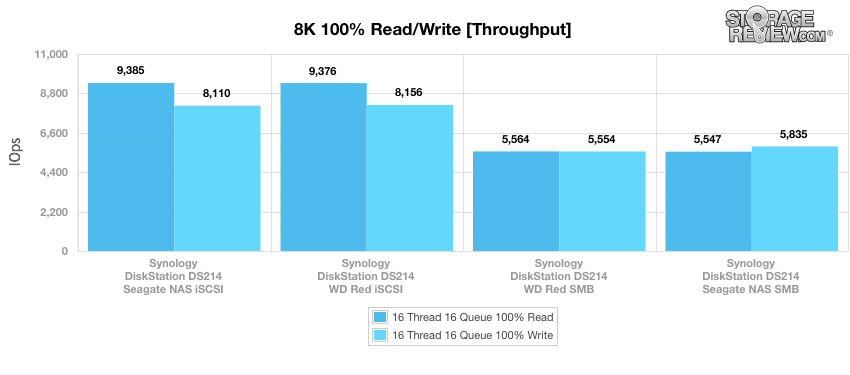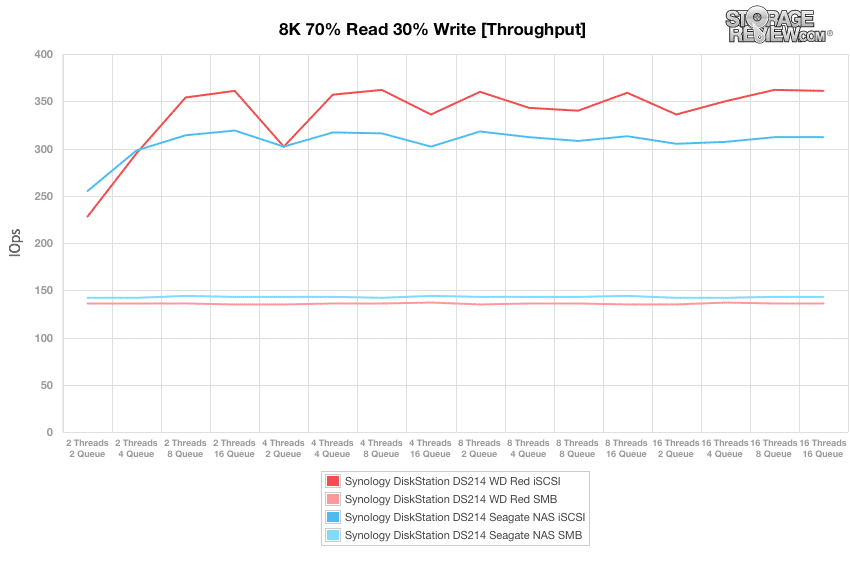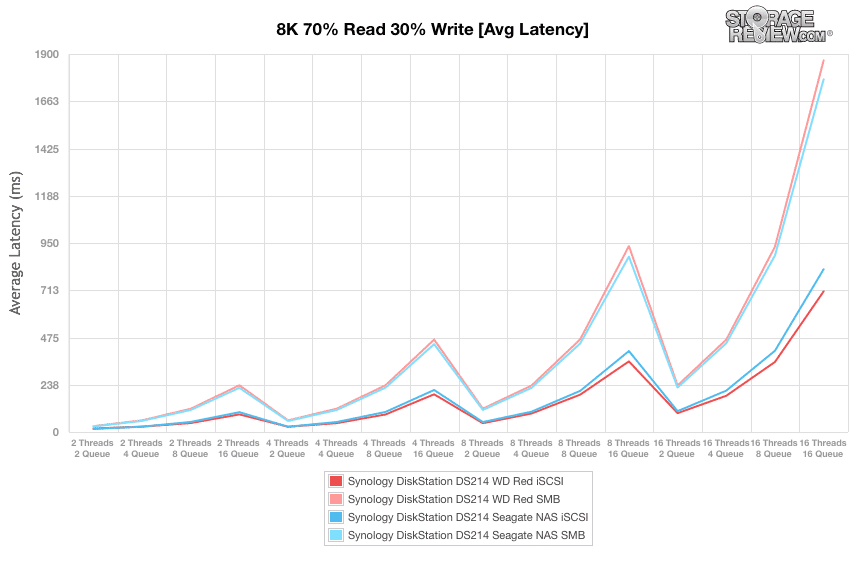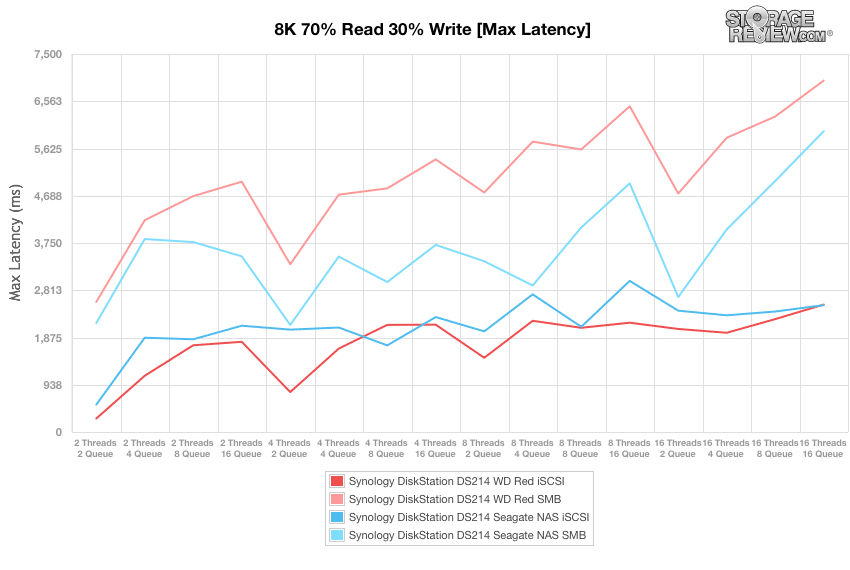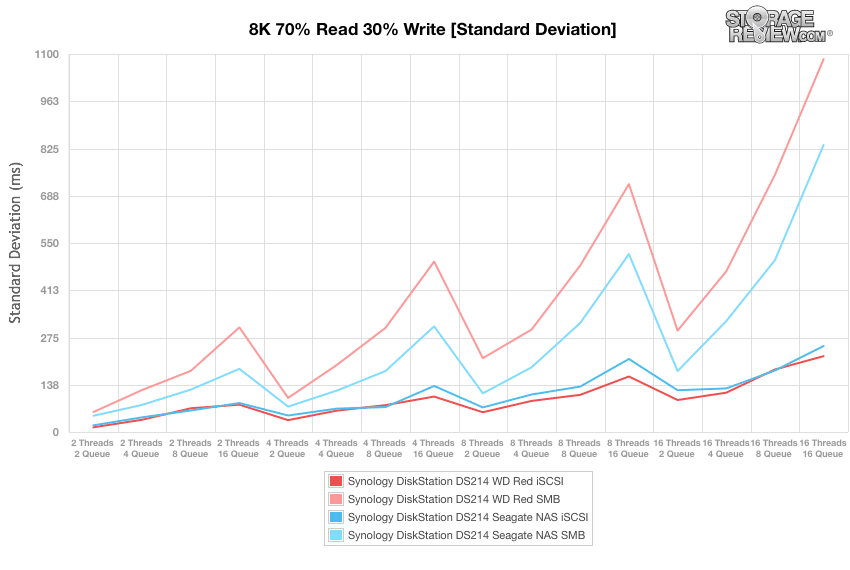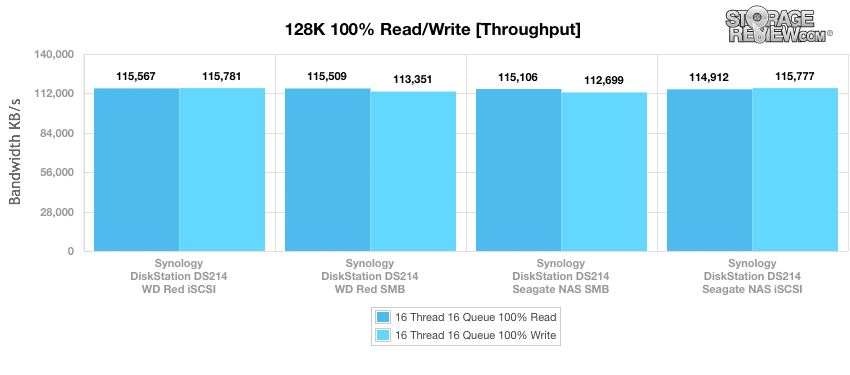
The Synology DiskStation DS214 is a 2-Bay NAS geared toward small and home offices. The DS214 is specifically designed for users that need to share files (and share files from multiple platforms) and protect data. The DS214 has a max internal capacity of 10TB (using 2x 5TB HDD in each bay), a dual core 1.066GHz processor, 512MB of DDR3 memory, and Synology’s Disk Station Manager 5.0 software. Like others in the Synology DiskStation NAS line, the DS214 comes with all types of connectivity, coming with USB 2.0, USB 3.0, and Ethernet ports.
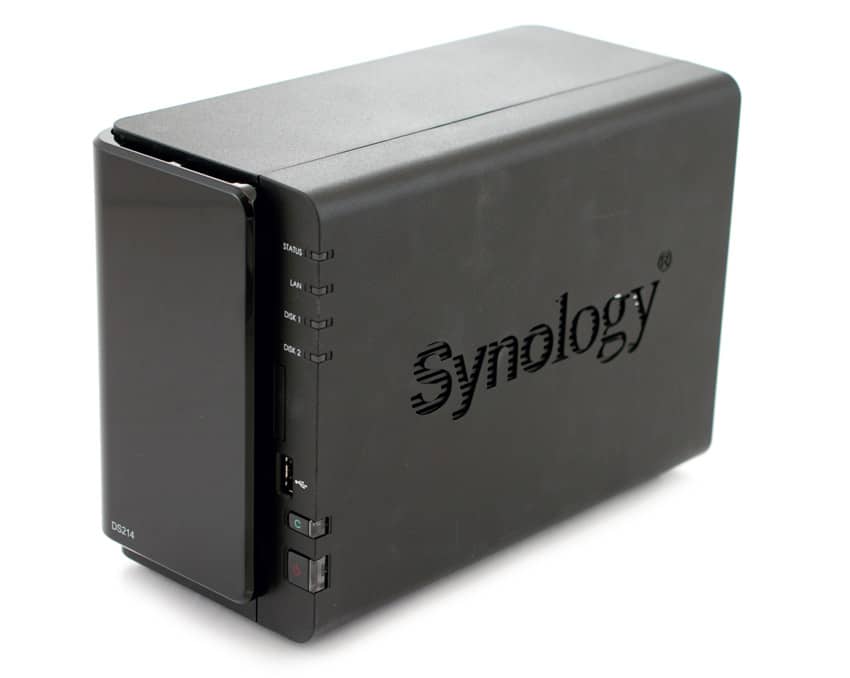
Running the award winning OS, Synology DiskStation Manager 5.0 (DSM), the DS214 offers seamless cross-platform file sharing. If a SOHO has say a PC desktop and a Mac laptop, they will still be able to backup and share files without a problem. And since most business is done on the go with mobile devices such as smart phones and tablets, using DS file users can access any file stored on the DS214 remotely. DSM allows the device to be used as mail server (through the Mail Server package) or a VPN server (through the VPN server). The device offers a centralized back up target that can be used with Synology’s Data Replicator software or Apple’s Time Machine. Boasting speeds of 100MB/s write and 110MB/s read (under RAID1 configurations in a Windows environment), the DS214 is ideal for the small or home business that is looking for an optimal price to value ratio.
The Synology DiskStation DS214 comes with a 2-year warranty and has a street price of $300.00.
Synology DiskStation DS214 Specifications:
- CPU Model: Marvell Armada XP
- CPU Frequency: Dual Core 1.066GHz
- Hardware Encryption Engine
- Floating Point
- Memory: DDR3 512MB
- Internal drive: EXT4
- Max Internal Capacity: 10TB (5TB HDD x2) (Capacity may vary by RAID types)
- External ports: USB 2.0 port x1, USB 3.0 port x2,
- Compatible Drive Types:
- 3.5″ SATA(III) / SATA(II) HDD
- 2.5″ SATA(III) / SATA(II) HDD
- 2.5″ SATA(III) / SATA(II) SSD
- Size (WxHxD): 108mm x 165mm x 233.2mm
- Weight: 1.30kg
- LAN: Gigabit x1
- Fan: x1
- Power Consumption: 22.64W (Access); 9.12W (HDD Hibernation)
- 2 Hot-swappable SATA Bays
- Two-year Warranty
Design And Build
Synology has used a fairly consistent aesthetic with their DiskStations over the last few years and we see it again with the DS214: plastic case with a matt black finish, a glossy plastic cover on the front, and Synology branding on the sides that also double as addition ventilation. The glossy plastic cover takes up most of the front of the device but on the right, starting at the bottom and working up, is the power button, quick copy button, USB 2.0 port, and four LED lights indicating Disk and LAN activity as well as drive status.
The drives can easily be loaded through the front of the unit. Each bay can also be locked to prevent accidental drive removal.
Swinging around to the rear of the DS214 we see the 92mm fan that takes up the upper two-thirds of the back of the device. Beneath the fan, going from left to right, are two USB 3.0 ports, a LAN Gigabit port, a place for a Kensington lock, and beneath all of the above in the bottom left corner is the AC connection.
Testing Background and Comparables
We tested both CIFS and iSCSI performance using RAID1 configurations of two popular 3.5″ 7,200RPM and 5,400RPM hard drives: the WD Red and Seagate NAS, both 4TB and both of the drives are suited to operate in NAS environments.
Drives tested for this review:
- WD Red 4TB (5,400RPM)
- RAID1 SMB
- RAID1 iSCSI
- WD Se 4TB (7,200RPM)
- RAID1 SMB
- RAID1 iSCSI
The StorageReview Enterprise Test Lab allows us to provide relevant and unbiased benchmarks of enterprise storage devices by establishing a testing environment comparable to what IT administrators encounter in real datacenter and field deployments. The Enterprise Test Lab incorporates a variety of servers, networking, power conditioning, and other infrastructure to design real-world configurations that accurately reflect the performance of storage devices during reviews.
We incorporate details about our lab environment and testing protocols into the review so that administrators and those responsible for equipment acquisition can fairly gauge the conditions under which we have achieved these published results. None of our reviews are paid for or controlled by the manufacturer of equipment we are testing. Additional details about the StorageReview Enterprise Test Lab and an overview of its networking capabilities are available on those respective pages.
In order to fairly evaluate the performance of the Synology DiskStation DS214 we need an environment that ensures that the DS214 is the I/O bottleneck rather than the network. Therefore this review employs a Lenovo ThinkServer RD240 running multiple Windows Server 2012 VMs in an ESXi 5.1 environment connected via a quad-port Intel i350-T4 NIC through a Netgear ProSafe GS752TXS switch.
- 2 x Intel Xeon X5650 (2.66GHz, 12MB Cache)
- Windows Server 2008 Standard Edition R2 SP1 64-Bit running on VMware ESXi 5.1
- Intel 5500+ ICH10R Chipset
- Memory – 32GB (4 x 8GB) 1333Mhz DDR3 Registered RDIMMs
Netgear ProSafe GS752TXS Smart 52-port Switch
- 48 1GbE Ports, 4 10GbE SFP+ Uplink Ports
- 176Gbps Aggregate Bandwidth
Enterprise Synthetic Workload Analysis
Our enterprise hard drive benchmark process preconditions each drive into steady-state with the same workload the device will be tested with under a heavy load of 16 threads with an outstanding queue of 16 per thread, and then tested in set intervals in multiple thread/queue depth profiles to show performance under light and heavy usage. Since hard drives reach their rated performance level very quickly, we only graph out the main sections of each test.
Preconditioning and Primary Steady-State Tests:
- Throughput (Read+Write IOPS Aggregate)
- Average Latency (Read+Write Latency Averaged Together)
- Max Latency (Peak Read or Write Latency)
- Latency Standard Deviation (Read+Write Standard Deviation Averaged Together)
Our Enterprise Synthetic Workload Analysis includes four profiles based on real-world tasks. These profiles have been developed to make it easier to compare to our past benchmarks as well as widely-published values such as max 4k read and write speed and 8k 70/30, which is commonly used for enterprise drives.
- 4k
- 100% Read or 100% Write
- 100% 4k
- 8k 70/30
- 70% Read, 30% Write
- 100% 8k
- 128k (Sequential)
- 100% Read or 100% Write
- 100% 128k
In the first of our enterprise workloads, we measured a long sample of random 4k performance with 100% write and 100% read activity to get our main results. The WD Red iSCSI provided the greatest throughput in read activity at 474IOPS, while the best for write activity was came from from the Seagate NAS SMB with 271IOPS.
Moving to our main average latency segment with a load of 16T/16Q, the WD Red 4TB iSCSI came out ahead with the lowest read latency of 539.09ms with the Seagate NAS SMB reading the lowest write response time with 942.82ms.
Both the Seagate NAS iSCSI and WD Red iSCSI had the shortest max latencies in read functions (1379ms and 1165ms, respectively). This trend was similar for write performance; the WD Red iSCSI and Seagate NAS iSCSI were 3009ms and 2989ms, respectively.
Reviewing the 4K latency consistency in our standard deviation section, the WD Red iSCSI was the overall leader with write latency at 184.88ms and a read latency at 47.06ms.
Our next benchmark measures 100% 8K sequential throughput with a 16T/16Q load in 100% read and 100% write operations. While both the iSCSIs ran neck and neck the WD Red iSCSI came out with a slightly higher write activity of 8,156IOPS and the Seagate NAS iSCSI just edged out the WD Red iSCSI with 9,385IOPS read activity.
Compared to the fixed 16 thread, 16 queue max workload we performed in the 100% 4k write test, our mixed workload profiles scale the performance across a wide range of thread/queue combinations. In these tests, we span workload intensity from 2 threads and 2 queue up to 16 threads and 16 queue. In the expanded 8k 70/30 test, while both iSCSIs had much higher throughput the WD Red iSCSI did outperform the Seagate NAS iSCSI, peaking at 362IOPS
With the 8k 70/30 average response times, the iSCSI drives had lower latency throughout and again the WD Red iSCSI came out on top with lower times in the higher queue depths and a lower average time overall.
With max latency, we see similar results as the above only the WD Red iSCSI ran a bit stronger throughout with the Seagate NAS iSCSI not giving it a run for its money as much.
For the entirety of the thread/queue spectrum, the WD Red iSCSI and the Seagate NAS iSCSI performed neck and neck, with the WD Red iSCSI winning out by just a tiny bit.
The last benchmark in our Enterprise Synthetic Workload testing is the 128k test, which is a large block sequential test that shows the highest sequential transfer speed for a platter drive. Looking at the 128k performance of 100% write and 100% read activity, while all the read speeds were relatively close, the WD Red iSCSI delivered the greatest throughput for read activity at 115,567KB/s, while write activity was very close the WD Red iSCSI delivered the greatest throughput for write activity at 115,781KB/s.
Conclusion
The Synology DiskStation DS214 is a marriage of performance, capacity, and affordability. The DS214 allows users to share files across different platforms and access files remotely. While it’s cheaper than the more high end “+” version, users also sacrifice a little performance. It comes with a 512MB of RAM and 1.066GHz dual core processor versus the 1GB of RAM and 1.33GHz dual core processor of The DS214+, and it still has a max internal capacity of 10TB.
With of that said, the DiskStation DS214 offers good performance for a 2-bay NAS. In our tests we verified Synology’s claims of 110MB/s read and 100MB/s write, which we saw in our iSCSI performance tests, which actually exceeded those figures. With WD Red iSCSI hard drives, we measured sequential speeds of 115MB/s read and 115MB/s write. Looking peak I/O we saw 8K sequential transfers topping 9,385IOPS read and 8,156IOPS write, while random 4K transfers peaked at 474IOPS read and 271IOPS write.
Pros
- Strong performance in sequential and mixed workloads
- Tool-less hot-swappable drives
- Cross platform file sharing and easy mobile access
Cons
- No SD-card reader
Bottom Line
The Synology DiskStation DS214 is a 2-Bay NAS server that is ideal for the small or home business that is looking for the ability of cross platform file sharing and back up, at an affordable price.

